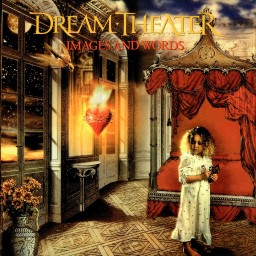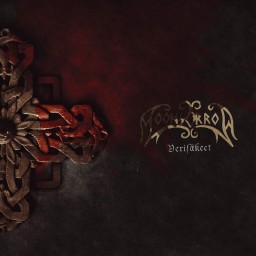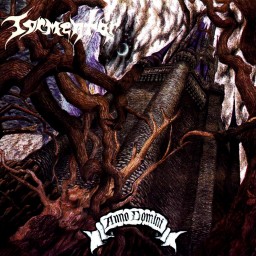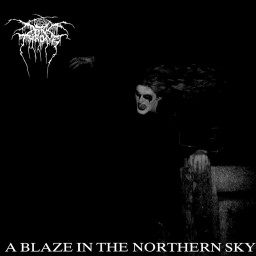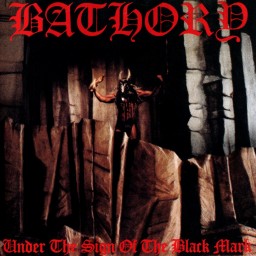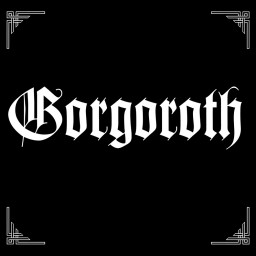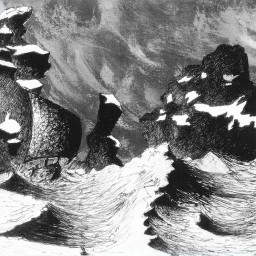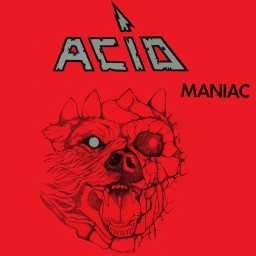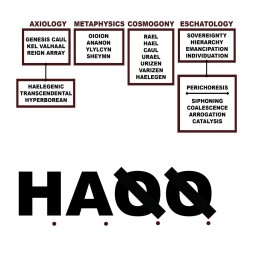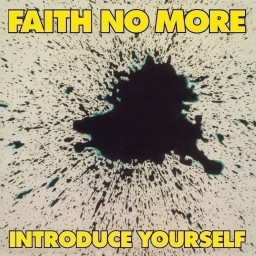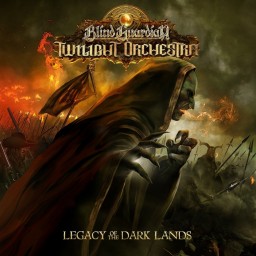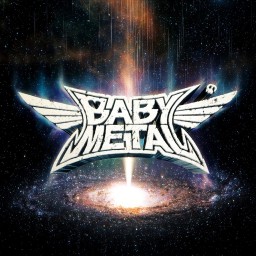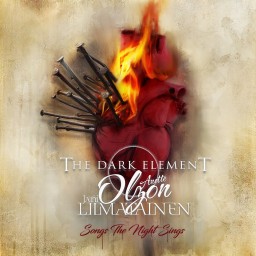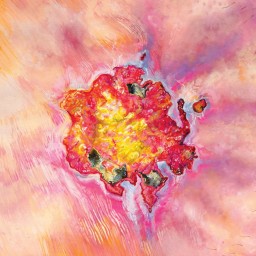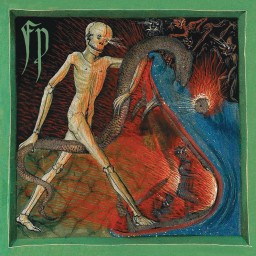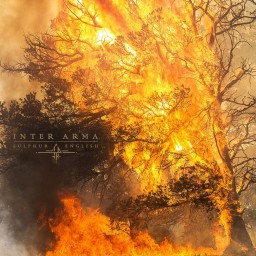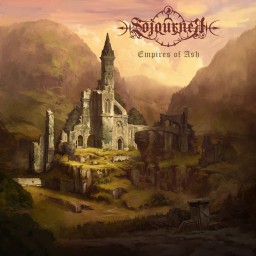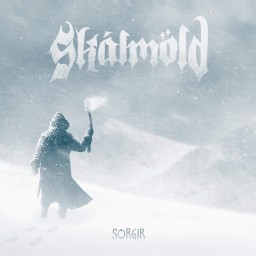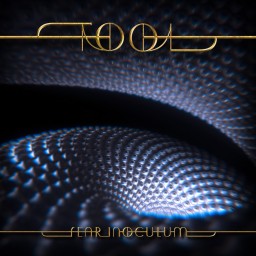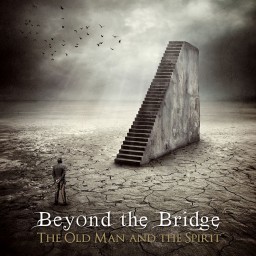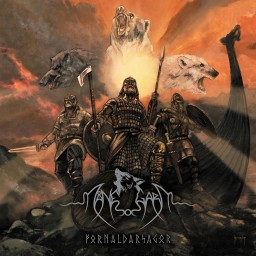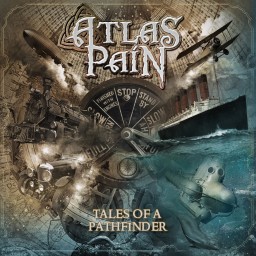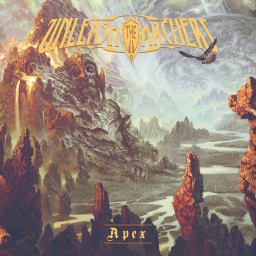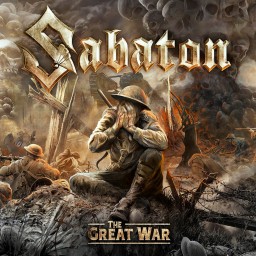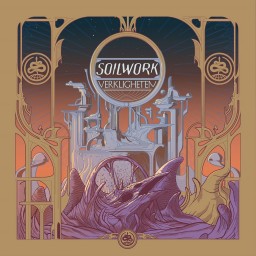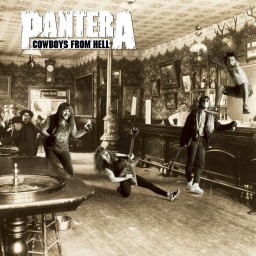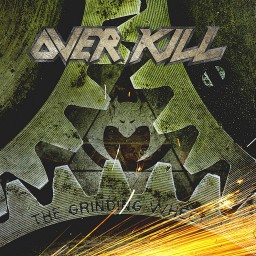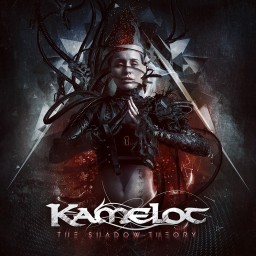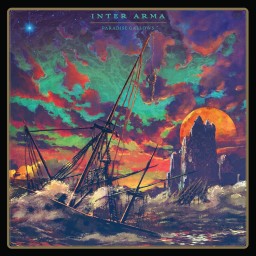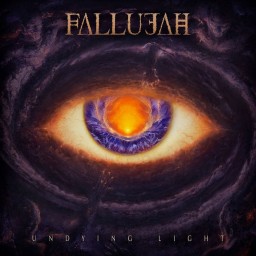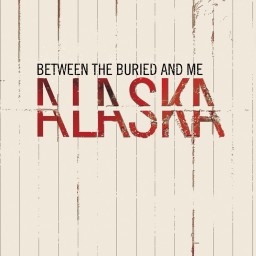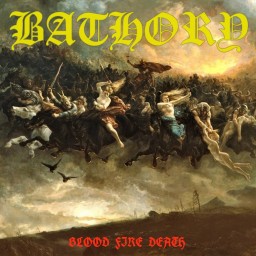Xephyr's Reviews
Before the Theatrics
As is probably pretty common among metal listeners, Images and Words and Dream Theater in general is an immensely important band that guided the Progressive Metal scene for many, many years. Dream Theater dominated my old Ipod with Octavarium, Change of Seasons, and Metropolis Pt. 2 with those introductory albums eventually giving way to Train of Thought, Systematic Chaos, and Dramatic Turn of Events. I was enthralled with the idea of amazing musicians playing music that obviously sounded technically difficult. It was no longer about catchy classic rock riffs or singalong pop songs, it was about creating music that showed off how creative and impressive a band can sound, and that forged my initial love for Progressive Metal of all kinds. Images and Words may not have been the first Progressive Metal album, but it was one of the first to really gain the street cred that allowed Dream Theater to spread their influence to many, many other bands and people.
After listening to so much modern Dream Theater going back to Images and Words fully for the first time was a serious treat. This 1992 Dream Theater is more bare bones and straightforward than their later content but it's far from watered down; it represents a simpler time in their career before they felt the need to go extremely theatrical with their compositions. Although Images and Words has three pretty forgettable power ballads with "Another Day", "Surrounded", and "Wait For Sleep", the other 40 minutes of the album are well produced and mixed classic Dream Theater that are accessible but impressive. LaBrie is thankfully pushed down far enough into the mix that he blends into the band's sound rather than cutting through it and each instrument gets its own spotlight on all of the extended tracks, especially in "Metropolis, Pt. 1". Images and Words stays true to being a legitimate Metal album with crunchy chugs and memorable riffs in "Pull Me Under" and "Metropolis, Pt. 1" while still inserting their signature time signature changes, syncopated rhythms, and notable but slightly out of place solos. Each member of the band is obviously very skilled which is what makes Dream Theater so exciting to listen to.
However, after all this time and hundreds of albums and bands later, Dream Theater have definitely lost their charm for me. Years ago I would have probably given this album full marks, but Progressive Metal is a genre that is only as impressive as the listener's knowledge if the band's goal is simply to thrill the listener through solos and complex rhythms. Of course I thought that Dream Theater was the craziest band on the planet because they were the only Progressive Metal band I listened to at the time besides Tool. Now that I've broadened my horizons Images and Words is still a great album with some of the most iconic Progressive Metal songs ever created, but it doesn't blow my mind anymore. "Pull Me Under", "Metropolis Pt. 1", and "Under a Glass Moon" are still some of my favorite tracks that showcase how Heavy Metal can be augmented through simple but effective use of music theory and creative rhythms, but Dream Theater's flaws of song structure, transitions, and the obviously questionable vocals really shine through even at the beginning of their career. These flaws will be multiplied as their career goes on and even though I still enjoy these earlier releases it's hard to say that this holds a candle to some of my other Progressive Metal favorites.
Genres: Progressive Metal
Format: Album
Year: 1992
The Shadow Of Odin
Since Moonsorrow's Jumalten aika was my first step into the world of a darker and heavier style of Folk Metal, it's no wonder that I have such an attachment to Verisäkeet. It took me quite a while to get around to checking out Moonsorrow's earlier albums, but once I got to Verisäkeet it hit me that this is the heavy Folk/Viking Metal experience I've always looked for. It strikes the perfect balance between the rawness of Bathory's Hammerheart and the masterful use of folk melodies to create a uniquely dark atmosphere that, for me, hasn't been able to be replicated anywhere else. The duality of calm forests and hills littered with the sounds of battle, glorious victory, or honorable death keeps me brutally invested in the drawn-out and complex structures that Moonsorrow weaves through the five tracks on this album.
Verisäkeet isn't afraid of what it is, and that is immediately apparent as after a few seconds of atmospheric forest introduction it thrusts itself into the fray with a perfect balance of folk violin and crushing metal riffage. This balance and union of Folk and Metal is the pinnacle of the genre for me so far, as everything works together so beautifully, from the poignant chugs to the fantastical melodic synths and other folk instrumentation. Many other Folk Metal bands opt to showcase Folk and Metal in separate sections, resulting in a product that is simply a Black or Heavy Metal album with some acoustic guitar or violin thrown into the bridges or choruses for added effect. Moonsorrow's approach of creating 14 and 20 minute epics means that they have room to craft an incredibly epic experience with the synergy of all the elements they use being top notch. Even the sillier Australian outback sounding effects have their place as they are used sparingly. For a 70+ minute album there is of course going to be some repetition, but elements are used sparingly between all the stellar riffing that whenever they return later in the album it still feels fresh and exciting. It also helps that each of the five songs in Verisäkeet has its own distinct identity that, despite the lengths, keeps the album constantly moving forward. "Karhunkysi" is a balance between Viking folk melodies with aggressively accented guitar riffs, "Haaska" is a sweeping and more atmospheric respite that swells from pounding Black Metal tremolo down to the calming sounds of a storm on a mountainside, "Pimeä" might be the darkest and heaviest Black/Folk track I've ever heard as Moonsorrow takes some Burzum synth sounds and uses them to amazing effect, "Jotunheim" is a repetitive but compelling journey through the previously created sonic landscape of Verisäkeet that ends with the peaceful but slightly unsettling sounds of "Kaiku".
Moonsorrow have created an album that is a journey through some world unbeknownst to ours and those are my favorite kinds of albums. The progression of the riffs, chords, and atmosphere of each song is distinct and incredible with transitions that feel very natural and smooth. Cohesion is normally a trend with my highly rated albums and Verisäkeet is easily the most cohesive Folk Metal album that draws out its own aura and paints its own world for me. The heaviness of the Black Metal riffs of "Pimeä" that transitions into a somber but frustrated sounding folk melody or the slow build and decay of "Jotunheim" just has this weight and sincerity that I only hear from a few select albums. This album has turned out to be the perfect storm of Folk, Black, and Viking Metal that just keeps impressing me each time I go back to it with its compelling, heavy riffs and mysterious atmosphere. It never overuses an instrument, melody, or idea and always knows exactly where it wants to take the listener next and how to accomplish it. Whatever journey the warriors of this album are on through the mystifying universe of Verisäkeet, they are marching forward with honor and pride through the treacherous but magnificent trials and tribulations of a darkened world.
Genres: Black Metal Folk Metal
Format: Album
Year: 2005
Missed the Wave
Right in the middle of Bathory's Blood Fire Death and the resurgence of Black Metal in the early 90's with the new blood of Darkthrone, Emperor, and Mayhem comes a very strange cult classic that I just couldn't wrap my head around. What starts out as a serviceable occult Thrash album turns into a mess of awfully done lo-fi production with certain instruments cutting in and out of certain sides of the mix and some truly laughable vocals after "Transylvania", which I'm going to call the point of no return for this album.
Anno Domini is full of decent but messy Thrash tracks plus the slower tempo Black Metal staple "Elizabeth Bathory" to break up the monotony, but everything past "Transylvania's" swing opener is just awful. It's aimless, horribly grating, and just generally uninteresting. Even the Thrash solos really lose their edge after the first few attempts, and the blast beats just overpower anything that could have been halfway interesting.
It's insane to think that this release came out a year after Bathory's Blood Fire Death, which of course is a huge name to live up to, but I expected something a little more refined than whatever this is. I don't get that same sort of lo-fi kick out of this that I do with Bathory or other early Black Metal bands, and I also don't get any sort of evil atmosphere either. If anything I was cracking up laughing at half of this stuff, so this one was a bit of a disappointment for me, to say the least.
Genres: Black Metal Thrash Metal
Format: Album
Year: 1989
The Classic Kind Of Evil
A Blaze in the Northern Sky sits atop the demonic but frozen throne along with Bathory's Under the Sign of the Black Mark and the later released De mysteriis dom Sathanas for being one of the truest to form traditional Black Metal albums released. While Under the Sign of the Black Mark is the most dirty and raw, and De mysteriis dom Sathanas from Mayhem has the more crushing but polished atmosphere, A Blaze in the Northern Sky creates the most evil sounding middle ground for classic Black Metal. Resting right on the edge of being too theatrical and silly, Darkthrone walk the tightrope of having chaotic but weighty riffs with vampire-like vocals that somehow never falters into the realms of pretentiousness or absurdity.
Each riff has that signature classic Black Metal lo-fi grind to it, but it's much more clear and manageable than something like early Burzum or Bathory. Whether Darkthrone is playing fast and furious tremolo sections or slower, crunchier chug riffs, everything is discernible while still having that chaotic Black Metal atmosphere that is so important on these early releases. The extended song structure is also a plus for me, as I tend to like my Black Metal tracks on the longer side, so having the 10-minute "Kathaarian Life Code" followed by a slew of 5+ minute songs is something that I'm a big fan of. It gives each riff more time to settle in and opportunities for the songs to properly build and fully flesh out their ideas rather than something like Bathory's old Thrash-like approach.
To me, A Blaze in the Northern Sky is a true classic of old school Black Metal that incorporates all of the aspects that fans love about the genre into one 6-track package. It has the chaos, it has the chug, it has the aggressive and grating vocals, it has the complex and extended song structure, and most importantly it sounds evil as hell. Many Black Metal bands at the time walked around stage in corpse paint and came knocking on venue doors preaching the sometimes questionable words of the Devil, but I find that very few bands really mirror this in the music they create. Darkthrone, on the other hand, sound like they are crawling out of a misty graveyard on a stormy night ready to prey on unknowing victims. It takes a certain amount of skill to sound this evil, and Darkthrone definitely have a knack for it.
Genres: Black Metal
Format: Album
Year: 1992
Aggressively Flawed Perfection
If I had to pick one album that defines early Black Metal for me, Under the Sign of the Black Mark would be the one. There are absolutely better Black Metal albums than this, even in Bathory's own discography, but the furious lo-fi aggressiveness sucks me back in every single time. The rawness and speed of the riffs and Quorthon's ragged but somehow endearing voice creates the perfect representation of what classic Black Metal was and how it should be done even to this day.
Bathory are the masters of lo-fi and it especially shows on this album. While the mix and production is dirty and almost amateurish at times with clipping and imperfections coming through, their style of playing and overall tone of all the instruments makes these imperfections just part of the performance. Every time I come back to this album I'm instantly reminded of how bad it initially sounds, but as I sit through "Massacre" and "Woman of Dark Desires" I realign my production expectations and always think that this just sounds precisely what classic Black Metal should sound like. "Enter the Eternal Flames" is easily the highlight, with a massive Black Metal chug riff that never gets old for me.
Blood Fire Death would be the pivot point for Bathory's career, and I very much prefer that album to Under the Sign of the Black Mark, but this album just has such an evil character about it that isn't completely overshadowed by Bathory's other two monumental releases.
Genres: Black Metal
Format: Album
Year: 1987
Old School With A Budget
Gorgoroth is one of those groups that I've purposefully not checked out due to a strange feeling that they wouldn't click with me, and I was certainly correct. This ruthless but short debut is the exact style of Black Metal that I struggle the most with and Pentagram isn't an exception to that. I can completely understand the appeal since the Black Metal riffs and overall evil and crushing style of the album is top-notch, but something about Pentagram leaves me walking away feeling disinterested and bored. The sticking point for me is the vocals, which even on repeated listens I just can't seem to get past. The vocal melodies are extremely uninteresting to me and they detract from the more impressive Black Metal riffing more often than not.
Even then, Gorgoroth don't exactly do anything new for me. What I got from this album is more of a proof of concept, if anything. Pentagram shows what more modern Black Metal can be with shiny production bells and whistles and a recording studio that's higher quality than the basement of some random shack in the woods. It's very faithful to its influences, so a straight up and old school satanic Black Metal album with a few decent ideas at the end of the album is what the product ends up being. "The Pagan Megalith" and "Maaneskyggens Slave" saves this album for me since it dusts off the heavy Black Metal chug melodies that I'm very much a fan of. While this is an important classic for some, I don't think it will be for me.
Genres: Black Metal
Format: Album
Year: 1994
Trudging Through Frozen Wastes
Blut Aus Nord arrived on the Black Metal scene right on the heels of Varg Vikernes (Burzum) in the mid-90's and through this impressive debut created a new and different path for Atmospheric Black Metal that trudges through the same snow drifts as Burzum, but with better equipment and more aggression. While Burzum's Hvis lyset tar oss slowly trances the listener into experiencing a certain atmosphere, Ultima Thulée throws the listener directly into the storm with its more aggressive and raw riffs and less repetitive structure. There's more anger and spite as Vindsval constantly howls in the distance as harsh but intricate Black Metal riffing and a surprising amount of charming melodies transport the listener to a different world, as Atmospheric Black Metal should.
A lot of my amazement with this early Black Metal albums is how well these solo artists are able to use the low production quality to their advantage, creating a sound that should be awful to listen to, but somehow stands the test of time and just feels more despondent and emotional than most Atmospheric Black Metal of modern times. At this time Blut Aus Nord only had one member plus a session bassist, much like Burzum, so these two singular guys managed to create genre defining albums extremely early in their career that are still unique and appreciated to this day. That's pretty amazing in my opinion, since Atmospheric Black Metal has turned out to be a very difficult genre to really nail down how exactly to create a good atmosphere.
Blut Aus Nord's atmosphere comes from raw aggression and bleak synth melodies, a perfect example being the ending of "The Last Journey Of Ringhorn" with its rumbling chug riff and contrasting synth. This aggression and more direct approach is performed extremely well, with chaotic riffs somehow still having sweeping and memorable melodies to them, especially the second half of "From Hildskjalf" and "The Plain of Ida". Ultima Thulée strikes a perfect balance of being a loud lo-fi mess but still being perfectly clear and intriguing to listen to. The vocals can get to be a little much after a while, but they certainly fit the album's theme and only add to the experience if you're willing to sit through them. "My Prayer Beyond Ginnungagap" and "Rigsthula" are also fantastic intermissions that offer a much needed moment of respite and feel right at home in the album.
Since I didn't really enjoy Blut Aus Nord's 2019 release Hallucinogen, it's been quite the experience going all the way back to their roots and seeing how proficient Vindsval was in the beginning of his career. He created something special with this debut that made me realize that I definitely prefer this style of Atmospheric Black Metal over the Burzum style of Hvis lyset tar oss, even though I gave both albums the same score at the time of writing this review. There's something about the heaviness and increased complexity of Ultima Thulée that keeps me more engaged and drags me into its dark and bleak world.
Genres: Black Metal
Format: Album
Year: 1995
Speed Metal Rush
An infectiously fun album cover to cover. It was a pleasant surprise hearing a female vocalist on an album like this who has the pipes to really drive the act home. When I first put this on I could have sworn I was listening to an alternate universe version of Rush, which is still a compliment in my book. Maniac slows down a little too much after the two blistering openers "Max Overload" and "Maniac", with "Black Car" and "America" being noticeably less energetic. "Bottoms Up" also overstays its welcome just a bit, but any of these songs are far from being bad. All of the ingredients of great Speed Metal are here, from the tight and accurate 16th note shredding to the intense and heavy chugging of "Prince Of Hell And Fire", which turned out to be my favorite track in the end.
Although they're overlooked, Acid delivers a fantastic Speed Metal performance for its time with a unique and talented female vocalist at the front of well written Speed Metal riffs.
Genres: Heavy Metal Speed Metal
Format: Album
Year: 1983
ERR: METAL_EXCEPTION_NOT_HANDLED
It seems as experimental and avant-garde Black Metal knows no bounds with how far it will push into the realm of eccentricity and unconventionality. H.A.Q.Q. is a highly experimental, chaotic, and dissonance based album that uses Black Metal vocals and tremolo picking as a base for what could be described as melodies. While there are some vaguely coherent musical elements scattered here and there in even the most dissonant tracks like "HAJJ" and "Pasaqalia", much of this album's run time is spent in turbulent walls of noise which eventually give way to the surprisingly beautiful interludes of "Exaco I", "II", and "III". While harsh and confusing, H.A.Q.Q. offers up some very memorable and wholly unique experiences, even though I could do without the dying recorder sound on "HAJJ".
The most prominent experiment that most will remember is the jackhammering glitchiness of notes being repeating at varying speeds and rhythms, which does its job of creating an uncomfortable atmosphere, keeping the listener on edge for when it may happen next. It's surprisingly used sparingly, to the point where I forgot it existed until "HAQQ", which is a huge plus because it makes the effect unique and interesting without totally feeling like a gimmick. I might be giving it too much credit, but it does a great job of creating a sense of confusion and harshness in a way that's completely new to me in terms of Black Metal. This harshness is properly offset by the album's interludes and closing track, which uses piano, church bells and synth to create a disturbingly calm atmosphere between the chaos. The album in full is an assault on the senses, but manages to strike some kind of balance somewhere along the way.
Where Liturgy shines on this album is the climaxes, with each feeling earned and executed extremely well. The buildup of "Virginity" that eventually leads into the riff of "Pasaqalia" is masterful, as well as the ending crescendo of "HAQQ" that sounds like a computer is tying itself into a knot while overheating and spewing errors all across a monitor. There's enough downtime in the varied "Exacos" to give some rest and respite before jumping back into the fray, which makes the climaxes all the more powerful when they do come up.
Although H.A.Q.Q. grew on me enough to write about it in this kind of way, I never really found it emotionally moving or anything. I think what Liturgy is doing here is somewhat groundbreaking and certainly very different than anything I've heard, but at the end of the day I didn't get much more out of it than what I've already stated. Is it weird and strange just for the sake of it? Possibly, but it's a weirdly, strangely, well composed and technically gripping album that made me want to investigate it as deep as I did. The vocals are easily the weakest part of the album to the point where I would end up zoning them out, but they serve their purpose well enough I guess. H.A.Q.Q. turned out to be an extremely interesting look into what creativity still lies in the unexplored corners of Black Metal, but the novelty of noisy and dissonance just for the sake of it has never really captivated me and has mostly worn off by what little I've heard. Down the road this may be one of the albums to point to as an important shift in how we listen to Metal or dissonant music, but for now it feels like a party trick that you tell your friends about so they can experience the madness once and then move on.
Genres: Avant-Garde Metal Black Metal
Format: Album
Year: 2019
Gatekept
Let's just get this out of the way first, shall we? Chuck Mosley on this album sounds like a hobbling drunken man who randomly wandered into the studio and recorded vocals. He sounds like your estranged uncle you only see once a year during holidays belting out karaoke at his favorite local dive bar. He sounds like the fifth in line to be a Ramones reject.
With that over with, Faith No More's Introduce Yourself is certainly a strange album with a lot of conflicting ideas. At its core it feels like a slightly slower and more refined punk album with a plethora of funky bass riffs, but throws in rap and hip-hop influences plus some very 80's synth backings. While I find myself enjoying the straight up punk and funk elements that are accentuated by tracks like "Faster Disco", "Chinese Arithmetic", and "We Care a Lot", the rest of the production that accompanies it just kills all the momentum for me. Mosley's vocals hold up well when they go for driving riffs and melodies, but fall apart during the rap/hip-hop sections or when attempting to sound sincere. The strangely disinterested rapping and spoken word vocals in "The Crab Song", "Death March", and "Anne's Song" sound like they're supposed to be goofy, but they turn out to be too goofy for their own good. The 80's synth backings sometimes add to the goofiness, but otherwise give an interesting contrast to the well-produced and spacious bass and guitar riffs.
This album offers a lot of room for growth if you can get past the gatekeeper of Chuck Mosley, since there are some great bass riffs and choruses overall, but I sadly can't. After repeated listens Introduce Yourself doesn't get any more endearing or emotional, it just gets more annoying. The album is structured around and highlights Mosley's vocals, so it's difficult for me to really enjoy anything else that's going on. I think "awkward" is the best way to describe how Faith No More sound on this one. I'm left with a weird feeling of not knowing what I should have gotten out of any of this and not really wanting to go back to find out.
Genres: Alternative Metal
Format: Album
Year: 1987
Out Of Tune
There was a lot to be excited about when Blind Guardian announced they were releasing an epic fully orchestral album. With albums like Nightfall In Middle-Earth and especially A Night at the Opera they've shown interest and set themselves up for this kind of release for around 20 years. With how over the top and metal opera-y they've been in the past, performing that bombastic style with a new medium that can handle it was something I was looking forward to.
Sadly Legacy of the Dark Lands doesn't deliver on its promise of a massive Blind Guardian orchestral performance. All the parts are there, with Hansi's vocals sounding as good as ever and the orchestra sawing away at their instruments in the back, but there's just nothing new or exciting here. Each song follows the same Blind Guardian format and doesn't utilize the orchestra's potential in pretty much any song. The verses and slower plucking parts sound hollow and phoned-in, and the swells and climaxes sound horribly mixed and produced, with horns and percussion sounding blown out and very low quality. The plot and spoken word are as laughable as ever which is just a shame considering how much time they had to design and arrange this project.
I really wish they would have realized that writing for an orchestra doesn't follow the same formula as a Symphonic/Power Metal album and took some inspiration from the classics to possibly have this project live up to its potential. For me, there's nothing really to come back for in Legacy of the Dark Lands.
Genres: Non-Metal
Format: Album
Year: 2019
Most Random Crossover Of 2019 Award
All things considered, I should be part of the target audience for BABYMETAL. I'm a guy who's into Metal and has been playing all kinds of rhythm games for years, starting with DDR (Dance Dance Revolution) and eventually getting into Stepmania and Osu! among others. After all those years of playing I've grown to tolerate and enjoy rhythm game music whether it's Eurobeat, warped Sound Voltex tracks, or hard-style electronic music. It's very hard for me not to draw any parallels between BABYMETAL'S music and the songs I enjoy playing in rhythm games, and not just because "Road of Resistance" was a popular Osu! map. When the second track of an album starts out with the infamous Seiryu's "Crystal Critical" sample that's been used a million times before, I feel like I know what kind of album I'll be dealing with. While there were a few surprisingly competent and catchy parts to this album, I got what I expected, which was a driving and hook-laden album with predictable and boring performances from the Metal portion of the act.
Boring guitar riffs and questionable harsh vocals aside, I'm surprised at how many decent songs there are on here. "Distortion" is a perfect example of their style done correctly with a standard metal riff and a pumping electronic melody bouncing off of each other, some pretty limp sounding double bass, and a catchy chorus to top it off. "Kagerou" is a straight up J-Rock song that I have little complaints about, and "Da Da Dance" and "Elevator Girl" are undeniably catchy, even if they are by-the-book pop songs when put under a microscope. Past that, Metal Galaxy attempts to throw in every piece of clichéd, overused international music they can into tracks like "Shanti Shanti Shanti", "Oh! Majinai", and "Night Night Burn!". "Oh! Majinai" is especially hilarious as Joakim from Sabaton pays a visit, securing the award for "Most Random Crossover Of 2019". Sadly, even Joakim couldn't save this track as he bellows out some strange sea shanty that just doesn't work at all. "In the Name Of" is notably weak as well, with some pretty laughable harsh vocals.
Considering a few years ago BABYMETAL were a complete joke that I had a good laugh at, Metal Galaxy really isn't that bad, sporting a few good and catchy songs with a decent and varied second half. The main vocalist who started this whole project is competent as well and is one of the main reasons the band has such draw on platforms like YouTube. As unique as they are, BABYMETAL will never be more than a pop group with a well thought out gimmick to me, and as infectious as their some of songs are I hesitate to call it well performed or written. To make sure I don't have to talk about BABYMETAL again for the foreseeable future, let's do a quick deep dive.
When BABYMETAL was formed in 2010, it was an offshoot of a female idol group created because a producer enjoyed metal music. After the lead singer was chosen, the producer tacked on two other girls to serve as backup performers and a full metal band. From there they performed at live shows until there was enough visibility and buzz to start releasing albums starting in 2014. This fact alone does a great job of putting BABYMETAL'S music into a better perspective as more of a live performance than meticulously created pieces of music. Groups like BABYMETAL want their music to directly service their live show, which Metal Galaxy probably does well. I can see this kind of stuff being very exciting to see live for fans of the band along with whatever performance and choreography they have planned for each song.
Japanese idol group or not, I still can't get into it. Maybe some of the songs off of here will make it into Osu!, in which case I'll be revisiting BABYMETAL for a few plays and retries.
Genres: Alternative Metal
Format: Album
Year: 2019
Catchy Metal Introspection
I knew what I was getting into when I threw this album on, but I didn't think I'd be perfectly spot-on with my expectations. After doing a quick scan of the band members it's immediately apparent what Songs the Night Sings was going to be, with Anette Olzon from Nightwish on vocals and Jani Liimatainen from Cain's Offering, an offshoot of Sonata Arctica, on guitars and synths. All 11 tracks are a similar mix of poppy song structure focusing on catchy choruses with synths and keyboards taking the spotlight in the instrumental mix rather than the guitar or bass. At its core Songs the Night Sings plays like the B-sides and cut tracks of Nightwish's Imaginaerum with less creativity and with the sole purpose of breaking into some kind of mainstream radio.
At the end of the day though, that's not inherently bad, is it? Catchy songs that are written well enough and meant to be enjoyed at the surface level by a wide audience shouldn't be instantly condemned no matter how much music I listen to. It's difficult to keep that mentality as I listen to more and more music as my standards are continuously heightened and warped to expect a certain amount of ingenuity and freshness. Songs the Night Sings is, for some reason, an album that made me step back and rethink how I go about criticizing albums, since it's simple, especially in the metal genre, to instantly slap a low rating on something that sounds slightly poppy in nature or has a little bit too much synth.
Sadly, even after all that talk of me breaking the chains of pretentiousness when it comes to talking about albums, Songs the Night Sings doesn't do a whole lot for me. I'm a fan of Anette Olzon's vocals in general and do have a soft spot for hook laden Power Metal like Beast In Black, but what kills Songs the Night Sings is the fact that the two musicians emblazoned on the cover aren't used to their full potential. I was never wowed by Olzon and most songs feel very hollow, especially "I Have To Go". The instrumentation from Liimatainen can be grand and engaging when he fully utilizes the orchestra, but most songs fall into the modern trap of creating a blasting wall of sound with every instrument drowned out as they play the same exact melody to give the vocals during the chorus maximum effect. "Songs the Night Sings" and "Pills on My Pillow" have the synth take center stage and it's just completely overpowering in an annoying way, especially the EDM dance rave that is "Get Out Of My Head", which is super catchy but I'd imagine after 5 or so listens I'll never want to come back to it.
This review is primarily for me, since it gave me a chance to really pinpoint why this sort of stuff doesn't work for me. Bands like Powerwolf, Beast In Black, and Twilight Force are even more bombastic than anything on this album and I enjoy them quite a bit, so what's the difference? Songs the Night Sings lacks that creative and fun element that many other cheesy pop metal albums have. The songs are catchy and most of the orchestra melodies are nice to listen to, but it feels like there's a lot more potential that these artists have that is being stifled. It's good pop metal, but so much of it feels hollow and scripted to follow modern rock trends, which I'm not a particular fan of.
Genres: Symphonic Metal
Format: Album
Year: 2019
Solemn Symphony
Side projects from extreme metal musicians have and, judging by False Confession, will always continue to be fascinating to me. As someone who isn't necessarily a fan of Brutal Death or other extreme metal genres, I sometimes wonder what some of these guys are really capable of musically outside of their selected sub-genre. Technical or Extreme Death Metal seems like a very deep crevasse that is difficult to crawl out of once fallen into, so it's no surprise that Weeping Sores was created to distance Doug Moore, vocalist of Extreme Metal band Pyrrhon, enough so he could create something new for himself. Weeping Sores burns away the vicious and haphazard shell of Moore's main project and inside lies a shockingly mature Death Doom experience. The blistering, grinding, and overall aggravating style that Pyhrron had is replaced by patient, atmospheric, and careful songwriting that takes full advantage of each element it presents. It's truly amazing what a shift in direction can do for a vocalist of his type.
Moore's personal style remains present, as the vocals are still deep and guttural, which at first doesn't feel quite right given the despondent and bittersweet atmosphere of the album, but the weight and restraint of the compositions balance out his hellish bellows. Aiding the equilibrium is the pronounced use of a sweet but evil sounding violin that acts as a resolution to the savage riffs and vocals, creating a calm but haunting atmosphere throughout the album. That type of resolution is definitely necessary as False Confession brings some seriously crushing riffs to the table, especially in "Transfiguration Of Flesh Into Dream".
What I find fascinating about albums like this is how proper usage of other instruments in metal can so easily change the metal foundation these albums are built on. Riffs go from crunchy and menacing to beautifully haunting when the violin decides to play along, and this idea is used consistently and fantastically throughout False Confession. There are even some sections where the guitar riff falls out and the violin plays the same exact riff, completely flipping the tone and atmosphere, which is an awesome touch that shows how well the instrument is used. Slowly but surely throughout the songs and album the violin becomes more and more demonic and possessed, reaching its screechy and uncomfortable climax in "Valediction Prayer". The album does have a ton of squealing, squeaking, and screeching from both the guitar and violin, which was slightly off-putting to me at first, but since the two instruments play off each other so well it helps to create tension and a feeling of distress that is well resolved by the heavy doom riffs.
Each Death Doom riff Weeping Sores plays feels fleshed out and ever changing, evolving as the album swells into faster Death Metal focused portions but then dips into slow, drawn out sections that know exactly how long to let notes sit for maximum effect. There's very little repetition due to the constant guitar screech sections which is a breath of fresh air for a doom-centric record. When repetition is used, like in "Valediction Prayer", it lulls the listener into an exciting groove to let the violin take over with its sweet but evil sounding solos as Moore rounds out the arrangement with bellowing but not overpowering vocals.
Weeping Sores has created a somber, menacing, but graceful album that relishes in its atmosphere and never feels lost in what it's trying to accomplish. The Death Doom genre has been consistently surprising me with its creativity, especially with this group coming from other bands I didn't necessarily care for. While the vocals could be a tad bit cleaner for me, False Confession is an exciting and well crafted hour of massive riffs and mournful melodies.
Genres: Doom Metal
Format: Album
Year: 2019
The Medieval Martyr
What a roller coaster Achatius has been for me this year. It came out in the beginning of the year and absolutely blew me away with its complex but raw structure and its engrossing concept and story. Over the next few months it dropped off my radar as I turned my ear towards the many other massive Black Metal releases this year which included Deathspell Omega, Mgła, the Batushka debacle, Yellow Eyes, and Misþyrming. After months of collecting dust in the back corner of my hard drive, I figured it was time to give Funereal Presence another shot to see how it stacked up considering the competition in Black Metal is pretty fierce this year. To my surprise, Achatius still sounded and felt fresh and gripped me even more than before with its unique riffing style and concept, cementing it as one of the most captivating Black Metal performances I've heard.
Albums that are able to illustrate a lush landscape with a discernible plot without the listener being able to fully understand the lyrics are one of my favorite things to find when wading through all of the new music that comes out each year. Achatius creates a very unique Black Metal experience by using the traditional but sometimes questionable raw, lo-fi production Black Metal fans are all too familiar with, but with melodic, exciting, and fluid tremolo riffs with accompanying church bells and cowbell of all things. Every choice Achatius makes in its composition is harmonious and creates a fully cohesive package that oozes personality and through that personality is able to present a compelling story that fits right into its Black Metal style.
The brief but apparently historically important tale of Achatius is given an appropriate Black Metal revamp as the Christian martyr is led through trials and tribulations to his inevitable demise. The real Achatius, a Greek centurion in the Imperial army, was tortured and beheaded around 303 AD after refusing to renounce his Christian faith, which sounds about right for the basis of a compelling Black Metal album. Although the lyrics are somewhat hazy, Achatius's four songs each paint a vivid picture of a man struggling with his faith in the face of a tortuous death. From the first track it seems that Achatius is already fully aware of his fate as it presents a lyric explaining the vision of three martyred knights as some fairly blatant foreshadowing. From there the album erupts into a chaotic whirlwind of percussion and technical guitar work with church bells and chanting seemingly mocking Achatius and his faith. He is condemned by the Pagan Gods that he denounces and is given no chance at reconciliation, and is taken to his demise in track 4. It took quite a large amount of listens to fully piece together this extremely dense album but now that it has clicked I'm completely hooked.
The complex guitar and percussion work that Funereal Presence manages to pull off creates the most exciting 48 minutes of Black Metal I've heard in a very long time, with no track feeling repetitive or lagging, all while maintaining the overall medieval and religious style of the album and progressing the concepts and story. Traditional Black Metal tremolo riffs are played with fantastic melodies and chord progression that give the entire album a feeling of aggression, chaos, and violence, but not in a brutal or Death Metal kind of way. There is always an interesting riff or melody to latch onto, leaving no sections that seem uninspired or created just to fill time. While the drums can sound a bit flat and shoved behind the other instruments, they create a turbulent foundation that the rest of the production can take advantage of. The drum rhythms are also uniquely technical in a way I've never heard before, with strange cymbal and bass rhythms echoing out during certain verses and chanting sections. The guitar solos and instrumental sections absolutely rip as well, with track 3 having one of the rawest solos in recent memory.
It's obvious that Achatius had a ton of care put into its creation and performance, with it being so dense and original. It takes a solid theme and squeezes out every last drop of creativity possible without straying off its well determined script even once. The religious atmosphere created by the well placed church bells, chanting clean vocals, and lyrics is something I've missed from the Black Metal genre, and Funereal Presence doubles down with an actually compelling concept that transports the listener back to the old-fashioned style of religious persecution by the hands of seven celestial beasts. The technical instrumentation and vocal performance is still exciting and compelling, production issues aside, and manages to create something musically familiar for Black Metal fans while as a whole being something one-of-a-kind. My only hope now is that more bands try their hand at being flogged to the hills of violations, since Funereal Presence are obviously onto something great.
Genres: Black Metal
Format: Album
Year: 2019
Massive.
Inter Arma hit me with the swift one-two punch of Paradise Gallows in 2016 into Sulphur English in 2019. Paradise Gallows eventually won me over with its beautifully slow building but chaotic atmosphere, whereas Sulphur English wastes no time in getting straight to the crushing riffs filled with desolate anger. I keep finding myself coming back to this album and it's just as heavy and engaging as when I first heard it, which is an impressive feat of Atmospheric Sludge songwriting as Inter Arma show that the fires they've set are far from being snuffed out.
"Massive" is the word that I've been using most to describe Sulphur English, as well as any synonyms in-between. Titanic. Absolutely colossal. A fiery behemoth. Rather than take their time building up to huge, memorable climaxes like in Paradise Gallows, Inter Arma chooses to up the density and intensity of tracks like "A Waxen Sea", "Citadel", and "Sulphur English" with a room-filling guitar tone and relentless percussion. They're still fantastic at giving the sludgy riffs enough room to sit and reverberate as well as effectively crescendoing into those massive moments, but on a tighter time schedule than their previous efforts. That sort of command over their style shows Inter Arma are still maturing and iterating on their songwriting approach, which is exciting as they've succeeded in creating one of the most unique album atmospheres I've heard in a while.
Inter Arma bring out the heft with the riffs in "A Waxen Sea", "Citadel", and even the second half of "Stillness". Each note feels like a step a 10,000 pound giant would take through a charred wasteland, the ground shaking and crumbling under its weight as the drums and percussion echo off into the distance. While the mixing and production may be loud, it's well done in that it creates a huge atmosphere that other sounds can be layered in. Echos and reverb from the vocals and more subtle drum parts fade and eventually get lost behind the wall of guitar and bass, which helps keep the atmosphere interesting and dynamic. Each track brings something new to the table, whether it's the pounding drums of "Howling Lands", the slow and somber contrast of "Blood on the Lupines", or the absolute chaos of "Sulphur English". Even the vocals have enough variety to keep each track sounding fresh through the rather long run-time. Although the intermissions of "Bumgardner" and "Observances of the Path" as well as the slowness of "Blood on the Lupines" grind the album to a halt, it serves as a necessary break from the disarray and heaviness that the rest of the album has. Amidst all that disarray, however, are intricate and engaging melodies and rhythms that I consistently want to come back to.
Engagement is where I think Sulphur English really shines. It's constantly changing and building towards something and after they've wound up the tension to its breaking point, Inter Arma deliver some truly crushing performances that are worth every second of buildup. Although I've always enjoyed Sludge Metal, Paradise Gallows and Sulphur English have been the first time I've been fully engrossed in the actual atmosphere of an Atmospheric Sludge Metal release. The feelings of aggression, isolation, and anger washing over a charred and dead landscape as husks of life attempt to find purpose and atonement for the destruction they've wrought is a vivid picture that I never thought I'd be able to paint only through music and an album cover.
Pretentious artsy feelings aside, Sulphur English has remained exciting and surprisingly accessible for me. While dense, tension-filled, and drawn out, I've never found myself avoiding it. It has engaging riffs and themes on every track and a unique feel that I can't get anywhere else. If Inter Arma continue to iterate on their style the trilogy of Paradise Gallows, Sulphur English, and their next album may be absolutely legendary in terms of Atmospheric Sludge Metal, at least for me. For now, however, this massive fiery maelstrom of an album is easily at the top of 2019 with no signs of being dethroned anytime soon.
Genres: Doom Metal Sludge Metal Post-Metal
Format: Album
Year: 2019
A Lulling and Fantastical Journey
After thoroughly enjoying The Shadowed Road back in 2018 I've found myself finally going back and checking out Sojourner's debut, which unsurprisingly features similar styles of both music and cover art. What initially drew me to Sojourner was the more calm and peaceful atmosphere that they were able to create, and that feeling is more intense on this album than on The Shadowed Road. Empires of Ash relishes in its flutes, whistles, and piano in order to carry the melody of each song with the Black Metal tremolo picking and vocals taking a backseat for a large portion of the album, creating a more mellow and dull wall of sound than other Atmospheric Black Metal acts. While it can get pretty repetitive and drawn out, Sojourner are able to create a beautiful experience that retains most of its atmospheric wonder through the tediousness.
As per usual with Atmospheric Black Metal bands, the name of the game is tremolo chord progression with blasting drums in the background, and Sojourner bring out some skillful songwriting and melodies while maintaining the formula. While "Heritage Of The Natural Realm" is driven entirely by flute and piano, "Aeons Of Valor" immediately switches it up and lets two distinct guitar parts rip into the foreground, showing they have enough creativity to fully explore their style. The contrast between the gorgeous and soft female vocals with the average but well mixed male harsh vocals helps boost the identity of the album and band as well, each one having ample time in the spotlight.
Empires of Ash can be a slow listen and is arguably derivative within its genre, but that doesn't take away from it being undoubtedly beautiful. The largest criticism is that as a full album it's definitely monotonous and takes almost zero risks or deviations for the entire hour. It lacks some grand and memorable moments especially on repeated listens, but the experience of laying back and enjoying some beautifully constructed Atmospheric Black Metal with a properly used female vocalist is something I very much enjoy. While it doesn't exactly instantly transport me to some fantasy world, it's a solid release that any avid fan of Atmospheric Black Metal would appreciate, especially if they enjoy something that's driven more by folk elements instead of the metal ones.
Genres: Black Metal
Format: Album
Year: 2016
Exactly What I Came For
Maybe it's because this is the first full album I've listened to by Skálmöld, but Sorgir delivered exactly what I wanted out of a Viking Metal album from Iceland; aggressive and raw as hell, but still laden with layered and interesting riffs that are pretty creative compared to normal Viking Metal fare. Couple that with fast and furious solo sections and a burly man screaming Icelandic at me for 54 minutes and I call that a recipe for success.
I'm sure that for seasoned Skálmöld listeners some of the material on Sorgir is repetitive, since it's their 5th album now, but for me this is solid Viking Metal with just enough folk to give Skálmöld their own style. They flip-flop satisfyingly between folky, riff driven sections to crushing chug segments throughout the album, which is exactly what I look for with this genre. Not groundbreaking by any means and there are some issues with the harsh vocals being a little bit too much sometimes, but that's going to happen since I don't understand Icelandic. The harsh vocals are also balanced out pretty well by choir/chanting vocals as well, so all in all it's a fairly balanced experience.
Just a very solid outing from Skálmöld, definitely worth a few full listens. Especially "Skotta", "Móri", and "Mara" on the B side.
Genres: Folk Metal Viking Metal
Format: Album
Year: 2018
Fear Inoculum: A substance or idea used to rid oneself and protect against fear.
As humans there are inherent fears that are pushed to the back of the mind each day in order to not dip into insanity. Constantly contemplating the 1 in 100 chance I have of dying in a car crash each time I drive to and from work isn't in my best interest if I want to be productive and hopeful for the future. Weighing the odds of success when releasing an album 13 years in the making against the hopeful but voracious clamors of devoted fans is also something I wouldn't want to think too heavily about. After all this time Fear Inoculum feels like a reboot more than a continuation, with Tool holding on to the same sound style but taking it in a different direction. With all the craze around this release it's easy and convenient to jump to whatever conclusions suit a chosen narrative, so I've found myself taking a step back to look at some objective facts regarding the creation and overall nonsense that Fear Inoculum had to go through to hit the shelves and streaming services.
After the release of 10000 Days in 2006 and its preceding tour, Tool had announced that they were beginning to work on a new album in early 2008. From there, the next announcement came in 2012 when it was stating that the album was "half done". Plagued by legal issues, injuries, and family matters, progress on the album slowed to a crawl with no songs being truly finalized. Many of these issues resolved by 2015 and the band got back to work, albeit slowly. It wasn't until early 2018 that the instrumentals were fully written, agreed upon, and sent to Maynard Keenan, the vocalist, to begin writing the vocal melodies and lyrics. These final instrumentals came from years of tweaking and rewriting over 20 different song ideas that would eventually turn into Fear Inoculum.
So, what does this mean for Fear Inoculum? The most substantial takeaway is that this album was legitimately 13 years in the making, with jam and recording sessions spread out along this downtime in between court hearings and other projects. The 80 minutes of music isn't something that was written 13 years ago and only performed now, but it also isn't something that was written just last year. Whether or not Fear Inoculum is subjectively genius or idiotic, it's objectively what Tool finally wanted to release after who knows how many hours of jamming, arguing, rewriting, and jamming again.
What Tool released is definitely not an instant classic, but a glimpse of the band focusing on different aspects of their sound and how musical ideas can form over the course of many years. My first experience with the album wasn't the greatest, with most of the 80 minutes blending together with no real deviation in sound except for memorable moments during "Invincible" and "7empest". I thought they established some nice grooves with the obvious use of wacky time signatures having to do with the number 7, which seems arbitrary but it's nothing new for Tool. Other than the instrumental grooves and some skillful drumming from Danny Carey, there wasn't anything to latch onto, with Keenan's vocals being much more subdued and sparse than in their previous albums. After "7empest" ended I left feeling slightly bored and perplexed, but not disappointed. For whatever reason, I just wanted to listen to it again.
After multiple listens I'm finally able to form enough coherent opinions about Fear Inoculum to say that it's an example of both success and failure from a long, drawn out iterative process. After 13 years of jam sessions and refining one project, it's easy to lose the excitement of unbridled creativity, and that's what Fear Inoculum lacks the most of. Every note, every chord, every drum flourish, and every strange electronic sound effect in the interludes have been meticulously chosen and run through some algorithm to fit into the equation of Fear Inoculum's sound. Couple that with Keenan's previously mentioned softer singing and you're left with an album that lacks the same punch and passion as previous albums, although that's partially by design.
Where Fear Inoculum succeeds is creating an atmosphere of subtlety. There are no massive moments like the climaxes of "Vicarious", "Right In Two", or "Parabola", there are no crunchy riffs like "Stinkfist" or "The Grudge", and there are no powerful vocal performances like "Lateralus" or "Sober". Fear Inoculum forces the listener to create a new spectrum on which to judge what is powerful or interesting, since it never reaches the aggressiveness of their previous albums. Once I familiarized myself a bit more with the album, Keenan's vocals on "Culling Voices" and "7empest" had a much more resounding effect compared to my first listen. I even found myself humming the chorus and riff of "Pneuma" randomly throughout my day, which made me realize that Fear Inoculum isn't as repetitive as I initially thought. Although seemingly simple and stripped down, the riffs and grooves stuck with me in a unique way. It makes me wish I knew more about music theory and composition, as there's probably some very smart choices being made with how they created these rhythms.
The ultimatum for Fear Inoculum comes down what the listener's expectations are coming into it, and that's why I believe it will remain as Tool's first misstep. This release isn't for everyone and it's difficult to point to any of its successes without running into its failures simultaneously. While the riffs are great, it can get monotonous after 80 minutes of it. While Keenan's vocals are used for great dramatic effect on some tracks, his overall presence on the album is extremely thin compared to 10000 Days or Lateralus. While the subtlety of the composition choices can be exciting, a lot of the tracks drag and can easily be called boring. It's all about how the pros interact with the cons for each listener.
In the end, the pros outweighed the cons for me. I've consistently been noticing exciting new details and rhythms I hadn't picked up on before and it's been a refreshing experience hearing Tool break some new ground after all this time. The percussion is insanely interesting throughout the album and the grooves and overall vibe of the album is unique and thought provoking. What holds Fear Inoculum back is that the listener has to be ready and willing to invest themselves and look for an experience, which conversely means that on the surface it very much is a sluggish 80 minute riff-fest with little payoff. I believe it's worth the investment, but it's not difficult to empathize with the other side that feels like it's a whole lot of nothing. Ultimately I'm happy that Tool was able to reach enough agreements that they were finally able to release their meticulously crafted product, so the only thing left to do is find out which side of Fear Inoculum you fall on.
Genres: Progressive Metal
Format: Album
Year: 2019
Amazing Debut For Beyond the Bridge
The Old Man and the Spirit is a meaty concept album that is very intelligently written, using interesting recurring musical themes that lead to a more complete sounding album experience. The masterful transitions that keep the story rolling aid listeners in overcoming its lengthy run-time, which was what initially kept me from checking out this album.
In the paraphrased words of Beyond the Bridge concerning this album, the concept of the work is that there are two main characters played by the two vocalists. The male acting as the Old Man and the woman acting as The Spirit. These two characters conflict within the album since they both have what the other lacks. The Old Man has experienced life in its fullest but still feels somewhat lost when it comes to understanding life. The Spirit, being transcendent, is capable of understanding concepts the Old Man cannot, but is unable to feel or experience life in the same way as the Old Man. These two converse and The Spirit offers the Old Man the ability to gain her understanding at the cost of the knowledge of his past experiences and feelings.
I was very impressed right from the start and Beyond the Bridge instantly sucked me in to the tale. Many progressive metal/rock bands can be a train wreck when they try to make a concept album of this size, especially as their debut album. What is very apparent right off the bat is that the members of Beyond the Bridge are extremely proficient at their respective instruments and at songwriting as a whole. There are very few parts of the album that drag and the tracks always continues to build on themselves, adding new themes and ideas while still retaining the more paramount themes established previously.
Not to mention the vocals are fantastic. Normally male vocalists in this genre that attempt to sing consistently at a higher range can become grating and sometimes insufferable. Beyond the Bridge's male vocalist is actually VERY clear and stable when going for higher sustained notes, which is a pleasant surprise. The layering with lots of different guitar parts, synthesizers, and even male choirs in certain parts is well executed, especially when the Old Man and The Spirit sing in tandem. The album also accomplishes its climaxes and falls very well in terms of instrumentation and dynamics, creating memorable moments that stick with you.
The Old Man and the Spirit is one of the better progressive metal albums I've listened to in a long time. It's been a long time since I could happily sit through an hour long progressive metal album without turning it off halfway through. A good portion of the music is masterfully done, but that doesn't mean there aren't a few silly parts either. The climax of the entire album near the end is somewhat chuckle-worthy, which in my opinion keeps this album from being a true standout.
Genres: Progressive Metal
Format: Album
Year: 2012
Closer to Valhalla
Although Månegarm partially returned to their roots with their aptly named self-titled release back in 2015, something still felt off to me. Much of the black metal influences of their earlier Vredens Tid material was lost and replaced with more folk melodies, ballads, and an overall cleaner and less raw sounding production. For a folk metal album, their self-titled was a step in the right direction after the stagnation of Legions of the North, but it didn't have any staying power for me, with the middle of the album dragging on for way too long and standout moments being few and far between.
Fornaldarsagor is another big step for Månegarm in their journey to win back their spot as one of my top Folk Metal bands. The guitar sound is rawer and much more dynamic than it was in Månegarm, the Black Metal tremolo picking makes its triumphant return without being overdone, and the melody riffs on "Hervors Arv" and "Spjutbädden" are catchy and powerful. All of these elements create a distincter and more varied performance, which is always a plus in this sort of genre. Even the vocals are pleasantly varied, with the standard Månegarm folk singing/yelling, even cleaner singing on tracks like "Dödskvädet" and "Ett Sista Farväl", and two or three different styles of harsh vocals. Månegarm liked flexing their myriad of vocal styles in their self-titled, but they've done a much better job of it here.
The overall feel of this album is also better and more cohesive than Månegarm, with Folk and Metal more properly married rather than having Folk take the spotlight. Thanks to better use of the two genres, a improved sense of atmosphere is creating taking you from a Nordic tavern in "Ett Sista Farväl", to a somber funeral in "Dödskvädet", to the heat of battle in "Sveablotet". Note that I don't understand Swedish so I'm going off of pure feel here, which isn't as accurate but can be just as important for a genre like Folk Metal.
Fornaldarsagor shows that Månegarm still has some juice left in them and hopefully their upward trend in quality continues. I think the straight-up Black Metal influenced Folk Metal days have come and gone, so expecting another album like Vredens Tid is out of the question, but this is a step closer for sure.
Although I enjoyed Fornaldarsagor even more with a few more listens, enough to bump it up another half-star, it can get a little bland in the middle. Maybe one too many ballads, maybe a little too much tremolo, and of course the Motörhead cover. I'm hoping that covers like these don't become a trend, especially when bands are putting them as the second to last track instead of the final track as a sort of addendum to the album. It really comes out of nowhere, messes with the flow of the album, and you're left confused at its inclusion during the final track since it sounds so different from everything else.
In any case, keep it up Månegarm, great Folk Metal release for 2019.
Genres: Viking Metal
Format: Album
Year: 2019
How Many Sub-genres?
There are times where I look at certain metal bands and say to myself "Man, these guys have thrown so many sub-genres together that this might be the limit". Then comes along a group like Atlas Pain to prove me wrong, mixing Symphonic, Power, Folk, Black, and a hint of Viking Metal together into a singular album that is bursting at the seams and barely able to keep itself together. While Tales of a Pathfinder leans into the Power, Folk, and Symphonic elements much more than the Black and Viking, it begs the question: Can there be too much metal in a metal album? Bands who attempt to cram this many genres into one package are few and far between, and for good reason. Striking a balance between all the pieces you throw together is fine line to walk on, but Atlas Pain have found some decent ground to stand on amidst the chaos of their music.
At its core, Tales of a Pathfinder is a Symphonic Metal album with Black Metal inspired vocals, but it takes so many twists and turns along the way that the only conclusion is that this is a confused project. On the beginning ambient track, with the help of the cover art, it paints a seemingly steampunk portrait with grand circus music and supremely awkward spoken word from a ringmaster. Sadly this atmosphere is shattered directly afterward as Atlas Pain launches into their signature style of power metal riffing with backing melodic guitar and orchestral passages. Add some confusing black metal vocals with a bellowing male choir and the full package of Tales of a Pathfinder comes barreling forward like a derailed freight train, fully unaware about where it's supposed to be going.
As unfocused as it can be, there is a ton of great music in this album, with catchy and complex rhythms and great use of the orchestra and choir to create an epic feeling that is slightly different than other equally bombastic Power Metal bands. The male choir has great synergy with the harsh vocalist and the power/folk metal guitars play well off of the orchestration. The balance between folk and power metal inspired riffs is surprisingly well done, but tough to pick up on at first. Where Atlas Pain fails in their composition is the symphonic elements, which are way too overblown sometimes given how seriously the rest of the album is structured. The spoken word in "Homeland" and "Baba Jaga" is hilarious, the atmospheric tribal stuff in "Kia Kaha" is confusingly random, and the synth riffs in "The Great Run" and "Homeland" are a bit too cheesy compared to the rest of the album. The folk melodies come and go as they please too, which is a shame as they created some of the best riffs in "Kia Kaha" and "Shahrazād".
Even though it has obvious flaws, Tales of a Pathfinder might just be a diamond in the rough for Symphonic or Power Metal fans looking for something different. It never really figures out what it wants to be, but through the haphazardness shines some great melodies, riffs, and moments in a style that I've never exactly heard before.
Genres: Folk Metal
Format: Album
Year: 2019
Standing Above the Rest
I feel like I stumbled on a gold mine when I was randomly recommended Unleash the Archers by a friend a few weeks ago. He had the physical copy of Apex and let me borrow it, so I popped it in my car on my drive home and was greeted with the heavenly blast of soaring power metal. On top of having some of the best and most memorable riffs of 2017 thus far, the concept and the story throughout the album adds a pleasant layer to an amazing power metal base.
The entire album is extremely energetic, always pushing forward with heavy riffs, a nice mix of slower chugging and speedier scale sections to mix up the track list. "Awakening", "The Matriarch", and "Cleanse the Bloodline" have some of the most memorable and catchy riffs I've heard this year from any album. Even most of the choruses are catchy as well, which is tough to do in a power metal album without sounding completely cheesy. Each song brings something slightly new to the table and accents different strong points about the band, whether that's riffs, clean vocals, harsh vocals, slower chug riffs, or full on power metal aggressiveness.
I honestly didn't notice that the lead clean singer was female, which is both impressive by her and pretty idiotic of me now that I listen back to the album. In my experiences, female leads sometimes have a tough time projecting their voice well on a more aggressive style of music, most of them sounding flat and pretty uninteresting. Unleash the Archers' vocalist Brittney Hayes blew me away with her performance on this album in general, sounding extremely powerful but never going over that cheese line that plagues a lot of power metal albums. Harsh and some clean vocals on "Earth and Ashes" by Grant Truesdell and Andrew Kingsley are also very welcome to break up the album and add more elements while also contributing to the narrative of the album.
Overall I can't see another power metal release topping this one for 2017. The energy and straight up metal performance Apex gives is something to behold. It has a very balanced mix of styles and a more classic power metal story-line of a character's journey away from a mystical mountain, fighting in battles and roaming about the land, just to be silenced back into the apex's prison. Simplicity back to the roots of power metal like this is a breath of fresh air that Unleash the Archers pulls off very well.
Genres: Power Metal
Format: Album
Year: 2017
Not Great Enough
The historians of Power Metal are back with their crack at a World War 1 concept album in the standard but grandiose Sabaton style. These Swedes have been milking their act for quite some time now, with The Great War being their 9th historical war themed album. (That doesn't count Fist For Fight, their debut album which was extremely dull and generic power metal.) As derivative as Sabaton's albums can be, they've done a fantastic job marketing themselves as the metal band that writes about historical battles and figures, pumping out content on YouTube as well as their own website outlining the inspirations behind their songs. As it turns out, Power Metal is a great genre to pay homage to specific historical battles or individuals since it has the flexibility to sound either pompous and victorious or aggressive and bleak while maintaining a consistent approach. That's, without a doubt, what Sabaton has been for the past 10 years since The Art of War; consistent. But that comes at a cost.
Even for the most hardcore fans of Sabaton or Power Metal in general, there comes a breaking point where it just feels like you've heard it all before. As a fairly avid Sabaton fan, I think I've finally found that breaking point. When I dug into The Last Stand 3 years ago, I couldn't believe that the more vocal critics found it soulless and boring. All the amazing stories about key battles and life or death situations gripped me, along with the music capturing those moments in memorable ways. Coming into The Great War after listening to the two singles, "Fields of Verdun" and "The Red Baron", I wanted Sabaton to touch on the unique horrors that World War 1 contained as well as the courageousness of those who fought. Sadly it's an empty shell of what could have been an interesting album.
Sabaton have dialed up the production another notch, adding even more synths, strings, and backing choruses to an already bloated style. By adding so many layers Sabaton's compositions have lost a distinct punch that they used to have, with tracks like "The Future of Warfare" and "Devil Dogs" having so much going on that nothing sounds especially interesting. Every time there is an interesting guitar riff for a chorus, it's masked by the blaring synths and backing choruses, which creates a grand-sounding atmosphere but leaves something to be desired.
Cohesiveness is also a trait that The Great War misses the mark on, with the World War 1 theme not shining through as brightly as it could. "The Attack of the Dead Men", "Field of Verdun", "Great War," and "The Red Baron" sell the album's theme the best, but for the most part aren't lyrically strong. Most of the lyrics turn out to be generic Sabaton lines that can be applied to any topic, such as "the legend will never die" at the end of the chorus in "The Red Baron". The Great War only scratches the surface on some of these stories and at this point in their career I expected a bit better from Sabaton.
It's a shame that Sabaton missed the mark on creating a true concept album about World War 1, since it feels like they were so close. The circus swing rhythm of "The Red Baron" was an amazing choice because of the history of the "Flying Circus", "The Future of Warfare" set the stage well in explaining how different World War 1 was from any previous conflict, and "In Flanders Field" is a fitting somber end to the album, but the entire package doesn't live up to the source material. There are just too many forgettable tracks and generic choices for me to be impressed with this.
"The Attack of the Dead Men", "The Red Baron", "A Ghost in the Trenches", and "Fields of Verdun" will be the singles to pull out of this album to add to the overall Sabaton playlist, but The Great War turned out to be a great misstep. "Bismark" showed that Sabaton still has some creative juices left in them though, so I can only hope they'll get out of their rut eventually, but they have a good enough brand that it's extremely unlikely.
Genres: Power Metal
Format: Album
Year: 2019
Empathy Achieved
Empath seems to be the beginning of another era for Devin Townsend, with his name alone replacing Devin Townsend Project as the artist for the first time since Ziltoid the Omniscient. Devin also funded the release of Empath out of his own pocket, making this album a somewhat risky business venture considered what's packed inside of it. This setup gave Devin exactly what he was looking for at the time: full creative freedom. As someone who wasn't too much of a fan of Transcendence, Z², or Epicloud, I can see why Devin wanted to break the shackles and let his somewhat eccentric mind run wild. Emapath is the brand of material that can only come from someone like Devin Townsend, who is remarkably musical but has had to suffer through mental hardships as well. In a lot of ways, Empath succeeds in showcasing and celebrating those hardships by leaving any ounce of caution at the door and delivering an album that is pure, unbridled insanity.
The theme of Empath is that there is no theme. Is that a cheesy subject? Absolutely, but it's what Empath excels at. The genre defying randomness of the entire record is an experience in itself, with the first real track "Genesis" hardly sticking to one musical idea for more than 4 measures. It's an assault on the senses, with dozens of different instruments and sound effects blaring into your ears with Devin's "signature" brick-wall mixing and production that has been present on his albums for the past few years. The lunacy of Empath's scope, which combines orchestra, choir, a full metal band, and any other sort of noise imaginable, is all fused into a wall of impenetrable sound can be daunting and off-putting. All of these nonsensical twists and turns, as jarring as they can be, create this absurd but captivating experience that is unapologetic in expressing Devin's inner machinations.
It would be impossible to truly discuss Empath without diving into the man himself, as his past and personality sheds quite a bit of light on kind of project that Empath is. Although I've only seen him live once, his personality is true to all the descriptions of being corny, eccentric, and passionate. With a little digging into his personal issues mentioned in interviews, the fact that he has been diagnosed as bipolar quickly surfaces and suddenly Empath begins to become more than just a random wall of noise. When Devin had first began his solo excursions, Biomech had been released alongside Strapping Young Lad's City, showing two polar opposites of his music. Twenty-two years later, Devin has taken his two musical personalities and smashed them together with zero remorse, leaving a chaotic but highly personable product behind. It took me quite a few listens, but Empath finally started to click when I realized that I was musically experiencing Devin Townsend's mid-life crisis. Sure, a lot of the lyrics may be overused and clichéd, but that's very much who Devin is, and a lot of the issues posed by Empath made me think about my own life in a very clichéd way.
Empath rips you from your sedentary island paradise with the realization that the hardships and monsters of life are how you create yourself. Once you start creating that life, can you pick yourself back up from hardship? Do you deserve the life that you have, or have you somehow lost yourself in the process? Through all the chaos of Empath's composition, Devin's struggle became a way for me to reflect on my own experiences and where I'm currently standing in my life, which is a very powerful affair for me.
Let Empath take you wherever it chooses and it undoubtedly becomes greater than a random jumble of genres and jarring transitions. The instrumentation is spot on, especially the drumming in "Hear Me" and "Singularity", and the sheer amount of content packed into each layer of the crammed mix ensures replay-ability. It's definitely not for everyone, but if it clicks, Empath is one of the most powerful progressive metal albums out there, living up to its name of being able to deliver all kinds of emotions and feelings to the listener if they're susceptible to receive them. I can't say what this release means for Devin Townsend going forward, but it was incredible to derive Empath's meaning to me as well as its meaning for Devin.
Genres: Progressive Metal
Format: Album
Year: 2019
Working The Same Old Soil
Soilwork return after the fairly successful and well received 2015 album The Ride Majestic, which was my first experience with Soilwork before diving into their earlier releases. Verkligheten was an anticipated release for me since the single, "Arrival", sounded like solid, classic Soilwork material. The tone and style of Soilwork and their ability to transition abruptly from heavier death metal riffs to clean, more melodic/progressive passages was always exciting and interesting to me.
That being said, this album sounds a bit too much like Soilwork in the end. No reinventing, no surprises, no spice. I still love the overall sound of the band throughout the album, save a a track or two, but overall Verkligheten is pretty uninteresting. Song structure is repeated on almost all the tracks, a lot of the choruses seem extremely generic and almost too mainstream/sing-songy ("Full Moon Shoals") for the overall style and sound of the album. There are definitely interesting parts in each song, but they get bogged down by the mediocrity of the product as a whole. They throw in some really good riffs and interesting shake-ups like the addition of female backing vocals in "Stålfågel", but the middle portion of the album is a snoozefest.
Verkligheten redeems itself a bit on the final two tracks, "Needles and Kin" and "You Aquiver", but not enough in my opinion. Still a solid release all things considered, since it's hard to make the formulaic Soilwork sound be straight up bad, but it leaves a lot to be desired. Verkligheten has a few good singles that make it an above average release, but as an album it falls flat. This honestly reminds me way too much of "Battles" by In Flames, where the In Flames sound is still there, just wrapped around weak and generic writing and a cookie-cutter sound choices.
Genres: Death Metal
Format: Album
Year: 2019
Chug Chug Chug Chug Chug
It's funny, after finally going through most of Metallica's discography in full for the first time, coming back to Cowboys From Hell presents some mixed feelings. Pantera's similarity to their chugging counterparts Metallica is uncanny sometimes, even though they drew influence from many other Thrash bands. They have a rawer, debate-ably more aggressive sound to them, replacing the Metallica theatrics and more complex songwriting with more guitar solos and even more riffs. Back in 1990 this brought aggressive metal back into the limelight after the original Thrash bands of the early 80's were beginning to die out.
Pantera definitely hit the sweet spot of their niche with Cowboys From Hell, with each riff being absurdly crunchy, their vocals being somewhat questionable, and the album's longevity being sadly short. If you wake up and want to listen to some Pantera, you're listening for the riffs, plain and simple. That's all fine and good, they have some great ones, but that's about as deep as the music goes for the most part. There are some interesting tidbits in tracks like "The Sleep", but the replay value on this or any Pantera album is pretty low. With almost an hour of run-time...that's a lot of riffs to sit through.
Sure, Pantera catapulted the Groove Metal genre into the metal world, but I don't put that in too high of regard. There were plenty of riff-based metal bands before this album and even though the different, syncopated riff structure made it stand out, Cowboys From Hell and Pantera as a whole just don't hold up as one of the greats for me. Doesn't mean the album is trash by any means, they've got a couple of great tracks on here, but as a package I'm not a huge fan.
Genres: Groove Metal
Format: Album
Year: 1990
Mean, Green, Killing Machine...And Some Other Songs
Checking out a band like Overkill quickly makes me realize how little Thrash Metal I've actually listened to. These guys have been a huge part of the scene for over thirty years and somehow The Grinding Wheel is the first time I've truly listened to them. Even this late into their career Overkill bring the energy with blistering, raw riffs and shrieking vocals that make up the classic Thrash Metal package.
It helps that The Grinding Wheel starts off with "Mean, Green, Killing Machine" because I absolutely love this track. It's just the right length, has the right amount of aggression, and some really catchy and memorable sections. Overkill may not be as heavy or satanic as other thrash metal bands, but if "Mean, Green, Killing Machine" is anything to go by they know how to create energetic, more accessible Thrash Metal. From there Overkill doesn't let up the onslaught until "The Long Road", which I didn't really care for. Afterwards, the album takes a nose-dive.
The novelty and excitement of The Grinding Wheel wears off around this point and the rest of the album is pretty bland and forgettable. It slows down in tempo and riff speed by a considerable margin in the second half and the album is fairly long overall. It feels like it drones on and on with no real excitement coming out of any of the tracks.
If you love Thrash or Overkill, definitely give this album a listen. It's some solid stuff. For me though, it lost its charm halfway through, and that's a shame because I'll be rocking out to "Mean, Green, Killing Machine", but not much else.
Genres: Thrash Metal
Format: Album
Year: 2017
Fading Into the Shadows
As much as I wanted to enjoy The Shadow Theory, after a few listens it's very apparent that it's mostly a rehash of Haven. Which is a shame, because I thought Haven was a solid record for what it was. The Shadow Theory just takes the style of Haven and reiterates it with excessively bland and uninspired choices.
With Kamelot being a renowned and influential band in the Symphonic Power Metal scene, they have large shoes to fill, but after their 12th installment their quality and creativity seem to be beginning to wane. They've gone through some serious and arguably detrimental lineup changes over the years and after 12 albums it's not too surprising that some of their flair will be lost. At the same time, if you're not going to reinvent the wheel, make sure the wheel you had before still does the job. Kamelot's basic sound and material, judging by the success of their previous albums, is fantastic, but The Shadow Theory doesn't quite capture that sound.
That being said most, if not all, of the tracks aren't offensively bad. Kamelot continues to write decent compositions, but the energy and spice just isn't there. They want to be powerful and grandiose, but most of this album comes off as plodding and humdrum, like it's just them going through the motions. The music doesn't have that punch at integral moments, something that Haven succeeded at more often.
"Phantom Divine (Shadow Empire)" and "Ravenlight" are probably the highlights of the album, everything else sort of blends together. Maybe "Burns to Embrace" and "In Twilight Hours" are a cut above the rest. Maybe. At this rate Kamelot are going to burn themselves out rather quickly if The Shadow Theory is indicative of their approach at this point in their career.
Genres: Power Metal Symphonic Metal
Format: Album
Year: 2018
Desolately Beautiful
I've found that as an avid fan of music I envy others that can become so invested in the medium. There's this raw emotional attachment and passion towards music that I see in others as they talk about how their favorite albums helped them through hard times or facilitated some epiphany about life. I was avidly involved in my college’s radio station with my own three-hour show, so it’s quite possible that music has become a bit of a job for me at this point, preventing me from becoming fully engaged or enamored. However, I’ve come to realize that this somewhat jadedness towards music creates some magical moments when a release does hit me with any serious emotion. Inter Arma’s Paradise Gallows turned out to be one of those releases.
I found Inter Arma through Sulphur English and quickly realized I needed to check out the rest of their discography. While Sulphur English is a maelstrom of burning fury, Paradise Gallows is a desolately textured soundscape of sludgy beauty. The contradictory title itself implies the duality this album conveys; a chaotic and depressing but beautiful landscape that stretches past the horizon. Heavy and crushing riffs resolve into tranquil progressive melodies that somehow mesh together to create the gorgeous but deathly world depicted on the cover art.
Since this is a sludge metal album at heart, every riff on this album is extremely crushing and well put together. Inter Arma know how to take their time with how they compose their songs, which give their riffs tons of impact. Every riff has a purpose as well, with each song building into well-written climaxes that give the feeling that each track deserves to be ten or so minutes long. Paradise Gallows never sits idle and is always progressing towards something, which creates a tangible journey through the album. Tracks like “Transfiguration” and “Violent Constellations” show a more chaotic side to Paradise Gallows, replacing the sludgy riffs with furious tremolo picking and an overall feeling of disorder. Sections like these are important to create a contrast between the chaotic and calm sections of the album, making both hit harder. “Paradise Gallows” and “Where the Earth Meets the Sky” show Inter Arma’s more progressive side, with “Paradise Gallows” being the most atmospheric track. The vocal performance and lyrics leading up to the climaxes they create are unreal, but especially on “Paradise Gallows”. There’s also this sort of Pink Floyd - Dark Side of the Moon effect going on with how their clean guitars sound throughout the album and it’s perfect for building the kind of atmosphere and world that they were going for on this album. That small addition of progressiveness amidst the sludge does wonders for the overall feel of the album.
This is the complete package when it comes to an atmospheric sludge metal release. Paradise Gallows takes its time but knows what to do with that space it creates, with varying vocal performances and incredible climaxes. It creates a desolate soundscape that is somehow still beautiful in its chaos. The album never breaks character and is a cohesive journey from beginning to end, all while laying down some of the best riffing and overall composition I’ve heard. This is just one of those albums that you can get completely lost in, and I certainly have.
Genres: Sludge Metal
Format: Album
Year: 2016
Undying Disappointment
I'll be honest, I've complained about the extremely vocal critics of bands that have gone through lineup or style changes when I believe the band is still putting out perfectly fine material. We all have that one band that we think used to be fantastic, they made one change, and now seemingly everyone dismisses them as if they can never put out good material ever again. Sadly, I'm going to turn into one of those people for a second when talking about Fallujah's Undying Light.
It's something about Fallujah's spacey, dreamlike, and sometimes unfocused sound that really drew me to The Flesh Prevails and, more importantly, Dreamless. Dreamless resonated massively with me for reasons I can't fully explain, but that's how music is sometimes. After hearing Alex Hoffman had left the band and was replaced with a new vocalist, Antonio Palermo, I was pretty apprehensive to come into Undying Light with any sort of confidence. I try my best not to be a shortsighted listener, giving credit where credit is due, and not writing material off just because the group goes in a different direction or takes some risks here or there, but sometimes you just have to take the hit and admit that the direction just isn't any good. Undying Light takes Fallujah and sets a course directly into that eyeball black hole on their album cover, probably never to be seen again.
Undying Light takes all the musical pieces of Fallujah and presents them in a watered-down, samey, and overall uninteresting composition. You can tell it's Fallujah; the guitar tone and spacey, distant, atmospheric elements are still there with a few good riffs like on "Hollow" and "Ultraviolet", but nothing builds, climaxes, or sounds particularly noteworthy. I've heard Fallujah called boring and unfocused in the past, and to a certain extent it's correct to call them unfocused, but that lack of focus built a lot of atmosphere in their previous albums. Undying Light seems legitimately unfocused with no band member really working together. It creates a neat, Fallujah soundscape for sure, but after a few listens of trying to look past the surface it's very apparent that this is a pretty shallow album. It feels like it's tumbling through space with zero direction or purpose. Almost nothing is accented by the drums, the guitar parts hardly work together most of the time, and most of the vocal rhythms and, honestly, the overall vocal performance feels like it was punched into the mix at the very last minute.
And with that, let's talk about the biggest change for Fallujah in Undying Light: the vocals. I can't say I was the biggest fan of Alex Hoffman's vocals, but for me they worked wonderfully in the context of Fallujah's previous albums. Antonio Palermo's vocals are just not good. Plain and simple. His harsh tone feels super tight, his "cleans" on tracks like "Sanctuary" are laughable, and the range of his voice is extremely limited and just doesn't fit with the album's style. The one singular note that he loves to use over and over is just too high, too harsh, and overall emotionless. Fallujah's vocal rhythms in the past have been all over the place as well, but Undying Light takes that nonsense and turns it up a notch. It really does feel like they were punched in last minute, which is a shame.
There's some good stuff in here, but it's few and far between especially after 2 or 3 listens. "Sanctuary" is a decent track until Palermo screams "LAZARUS", "Ultraviolet" is okay, "Glass House" is a decent opener, "Distant and Cold" works as the album's one entirely atmospheric track, but that's about it. Just a very disappointing album from another band that couldn't handle a vocalist change, even though some of the ideas could have been so much more.
Genres: Death Metal Progressive Metal
Format: Album
Year: 2019
The Metalcore Catalyst
After going through a solid chunk of Between the Buried and Me's (BTBAM) discography, this album felt like the correct time to chime in. I'm definitely biased against the Metalcore/Deathcore type of sound, but since these guys were very influential in the genre I figured I'd do my due diligence and get up to speed.
BTBAM's self titled, as well as The Silent Circus felt like the band was definitely growing into something bigger and more refined. Alaska seems to be that turning point, but they had way too many ideas shoved into one product. I've always had a soft spot for an eclectic and spastic music style, with abrupt changes not bothering me as long as they're done well. Alaska has the abrupt changes down to a science, but none of them seem to have an overall meaning or flow to them. They sort of just happen. They never really build towards anything, fall from anywhere, or go anyplace in general, which gets old really quickly when the main sound they go back to is generic-sounding Metalcore/Deathcore.
The reason why I'm writing this review down, however, is to present an idea that I thought was interesting: Alaska sort of serves as an a la carte of exploring the Metalcore genre and what can be done with it. While BTBAM present a ton of different ideas to varying effect, I can definitely see how other bands would just take one gimmick or sound style from an album like this, create their band around it, and make it sound better and more fleshed out than Alaska did.
I enjoyed Colors way more than any of BTBAM's early offerings, but I can see how something like Alaska helped shape the genre in interesting ways.
Genres: Metalcore Progressive Metal
Format: Album
Year: 2005
A Quintessential Culmination
When it comes to albums and bands that have been said to completely define or create a certain genre, I try to keep my wits about me and my nostalgia factor in check. The notion of "this album changed the way music is perceived" can be a quick and easy way to justify ranking an album as a top scoring 5 out of 5, but does that necessarily mean that the album itself is good? More often than not yes, these classic albums live up to their legacies, but I try to keep an open mind. Blood Fire Death took all of my doubts and pounded them completely out of existence.
I had been listening to the front half of Bathory's discography just to educate myself on where the Black and Viking Metal genre came from, and at first I didn't think I'd find an album that made me "get" it. Bathory's self-titled debut, The Return..... , and Under the Sign of the Black Mark were great primers for the founding of Black Metal, with Under the Sign of the Black Mark being one of the strongest Black Metal albums I've heard. Bathory being able to take a Thrash Metal foundation and somehow build upon the sound by lowering the quality in multiple ways is strange but impressive in a historical sense. They also pull off the lo-fi, terrible production sound better than most modern Black Metal bands; it sounds more genuine rather than a gimmick, which is admittedly pretty obvious since they were probably working with what they had available to them at the time.
As impressive as their first three albums were, Blood Fire Death hit that sweet spot for me where I finally understood why this band is so important and why Black/Viking Metal can be an amazing genre. While Under the Sign of the Black Mark is Bathory's essential Black Metal album and Hammerheart is their essential Viking Metal album, Blood Fire Death marks the collision of these two genres and Bathory's clear transition into Hammerheart. Having these two genres interact with each other and attempt to force themselves into the spotlight over the other is fascinating to listen to, which is what I think makes this album special.
Blood Fire Death is book-ended by "A Fine Day to Die" and "Blood Fire Death", which are lengthy epics where Viking Metal triumphs over Black Metal, giving a more theatrical and riff-focused performance. Aggressive and slower riffs than the normal Bathory fare along with more chorus and clean guitar parts give these two tracks a sense of grandeur and triumph. The Thrash Metal solos and Bathory sound quality are still there, but it manages to sound larger than life and be heavy as hell. Quorthon's voice is as powerful and ragged as ever, but a slower, more clean singing style finally emerges from him on "Blood Fire Death", which is an awesome shift to hear.
In the middle of the album, Black Metal reigns supreme. Each song from track 3 to track 7 is just as aggressive, evil, and hatred filled as the average song from Under the Sign of the Black Mark. While the topics and overall feel of the songs are about war, battle, and bloodshed rather than Bathory's original best friend, Satan, it works insanely well to deliver a classic and raw Black Metal experience.
Combine these two distinct parts into one album and you have one of the quintessential albums of extreme metal that showcases the rise of two genres that would become a massive part of the Metal world for years to come. While I didn't enjoy Hammerheart's take on Viking Metal as much as it seems everyone else did, I can safely say that I understand and agree with Blood Death Fire being the beast of an album that it is.
Genres: Black Metal
Format: Album
Year: 1988










